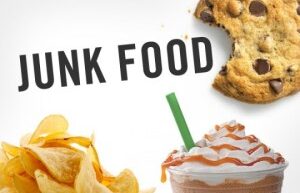Did you know that certain foods you eat can damage your brain? Many are shocked to find out that consuming a food they eat every day can result in both impaired learning ability and impaired memory. That’s not all; continuously making the incorrect food and beverage choices over your lifetime can lead to Alzheimers.
Alzheimers is a progressive mental deterioration due to generalized degeneration of the brain. It’s time we started taking degenerative diseases like Alzheimers, cancer, and heart disease more seriously throughout our lives, and not just once it’s too late. The daily food choices we make in our 30’s, 40’s, and 50’s can help prevent these horrible diseases.
Sadly, my wife has experienced firsthand how catastrophic Alzheimers can be as she lost one grandmother to this horrific disease and her second grandmother has recently been diagnosed with it. She just raised over $800 to help fight this disease by participating in the Blondes vs. Brunettes Powder Puff Flag Football Game, so I thought it was my turn to do my part by spreading the word about the #1 food that harms your brain, fructose.
In a 2012 UCLA study, researchers found that a diet high in fructose slows the brain over time, damaging your memory and learning ability. “Our findings illustrate that what you eat affects how you think,” said Fernando Gomez-Pinilla, a professor of neurosurgery at UCLA. “Eating a high-fructose diet over the long term alters your brain’s ability to learn and remember information.”
While earlier research has revealed how fructose harms the body through its role in diabetes, obesity, and raising your triglyceride levels in your blood, this study is the first to uncover how the sweetener influences the brain. Fructose is found in cane sugar (sucrose) and high-fructose corn syrup, an inexpensive liquid sweetener. The average person consumes a hefty quantity of fructose without even realizing it from all of the soft drinks (usually high-fructose corn syrup), sweetened juice drinks, sports drinks, processed junk foods like cakes and candies, store-bought salad dressings, breads, cereals, peanut butter, and even condiments like ketchup.
The average American consumes roughly 47 pounds of cane sugar and 35 pounds of high-fructose corn syrup per year, according to the U.S. Department of Agriculture.
Yes, natural whole fruits do contain fructose, but generally contain considerably smaller quantities of fructose than you would consume in a processed food or drink. “We’re less concerned about naturally occurring fructose in fruits, which also contain important antioxidants,” explained Gomez-Pinilla, a member of UCLA’s Brain Research Institute and Brain Injury Research Center. “We’re more concerned about the fructose in high-fructose corn syrup, which is added to manufactured food products as a sweetener and preservative.”
It is vital that we make a conscious effort to read food labels and avoid eating all of these fructose-filled foods. Small changes can make a huge difference. Try squeezing lemons and limes into water or teas for a healthy flavorful drink, choose unsweetened iced tea instead of sweetened tea or juice, make your own salad dressings using olive oil and vinegar with spices, choose oatmeal over sugary cereals, and buy only natural peanut butter.
If you’re like most people and can’t completely avoid the temptation of an occasional ice cream treat or chocolate cupcake, then also eat foods rich in DHA omega-3 fatty acids, like salmon, walnuts and flaxseeds, or take a daily DHA capsule. Gomez-Pinilla recommends one gram of DHA per day. “Our findings suggest that consuming DHA regularly protects the brain against fructose’s harmful effects,” said Gomez-Pinilla.
So what we’ve learned here is a diet high in fructose results in impaired memory and learning in your brain, increased risk of Alzheimers, increased risk of diabetes, and increased risk of heart disease. Am I forgetting something? Oh yeah, don’t forget about the extra belly fat! Mmm… fructose.
Here are 5 Brain Boosting Benefits of Exercise






Add comment